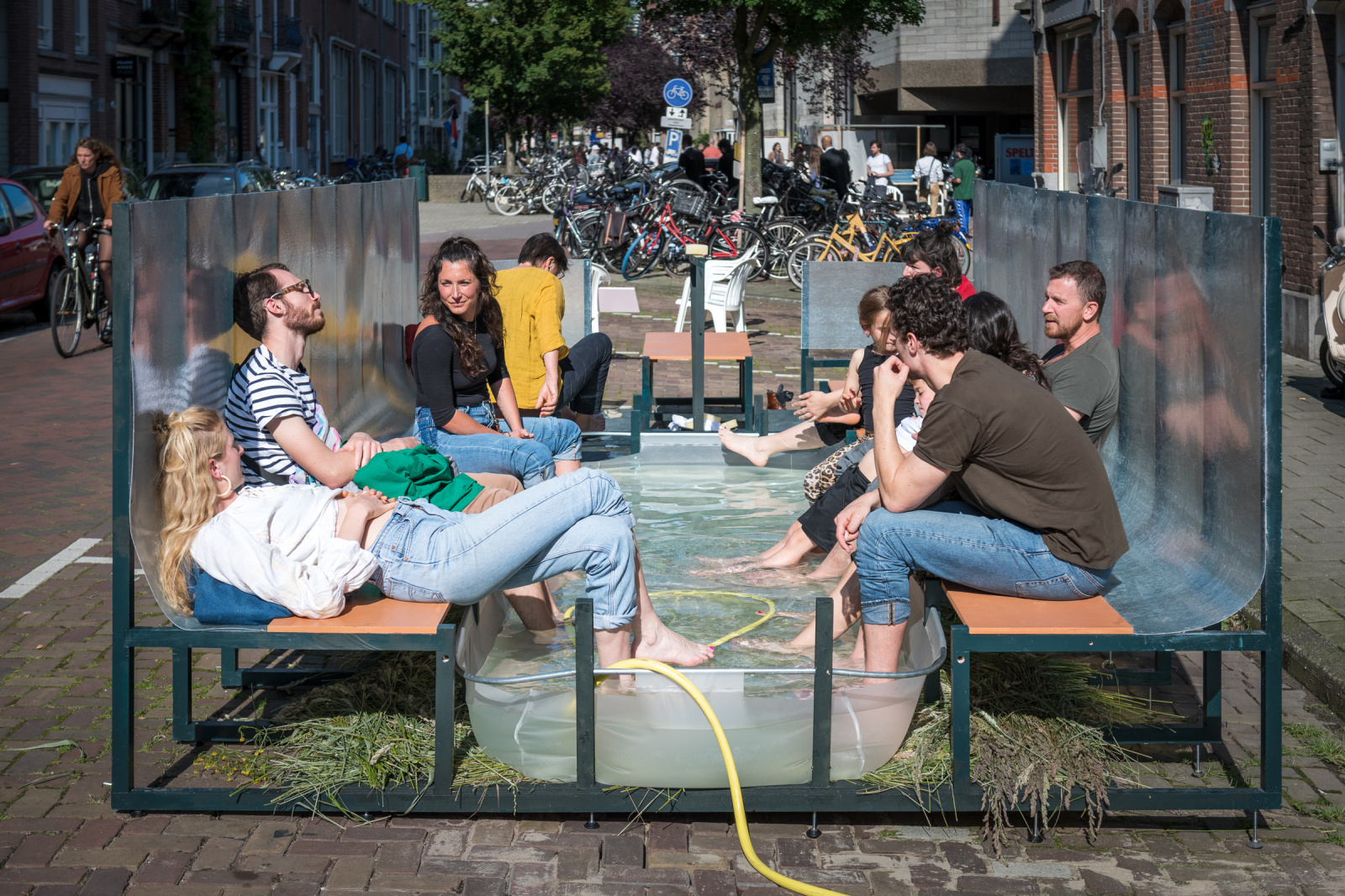Imagine living in a city that looks after its inhabitants, takes care of their surroundings, and enables people to care for themselves and others. What does such a city look like? How does it feel? In this series, we’re rethinking the city from a feminist and care perspective. Caring cities place people, health, safety, and collective wellbeing at the heart of decision making, emphasizing the value of paid and unpaid care work for all. Together with designers, researchers, artists, policymakers and activists we will uncover how we can (re)design cities, systems, spaces and human relationships to enable a culture of care grounded in values of compassion, empathy and equity for all.
In the last part of Creating Cultures of Care, we will focus on interpersonal relationships and discuss which rituals and practices we can introduce into our daily lives to become more caring communities.
Kursat Ozenc is a designer, educator, and an author. He is a VP of design at JPMorgan, specializing in design strategy, user experience and product design. Kursat teaches classes on organizational culture at Stanford d.school and writes about work, rituals, and culture. His work on rituals has appeared in the New York Times, Atlantic, Fast Company, 99U, and Canadian Public Radio. He has written two books, Rituals For Virtual Meetings (2021, Wiley) with Glenn Fajardo, and Rituals For Work (2019, Wiley) with Margaret Hagan, to help organizations build healthy cultures. His Medium publication Ritual Design lives here, and his initiative Ritual Design Lab lives here. Kursat holds a Ph.D. in Design from Carnegie Mellon University, an MFA from Sabanci University, and BID from Middle East Technical University. He was born and raised in Turkey, and currently lives in Sunnyvale, California.
Yelizaveta Strakhova’s spatial practice exists at a crossover between art and architecture questioning the boundary between the two. She experiments with various formats of social gatherings and space-making. Driven by the belief that human-water relationships are reflective of the ways and values of societies at large, she sees great potential in developing spaces that create paths for engagement with the element that goes beyond the merely utilitarian exploitation of the resource that dominates the urban realm.
Yelizaveta sees the potential of communal bathing sites and practices to expand the definition of self-care by reestablishing the intrinsic link between personal wellbeing and that of the environment and society. With the support from the Stimulerings fonds, Yelizaveta has recently conducted material research together with the TextielLab in Tilburg. She has created textiles that can be used in the architecture of communal bathing spaces and the care rituals for which become a part of the somatic vocabulary of the bathing practices. Her most recent project, which is meant to open at the end of January in Amsterdam, is a temporary experimental communal bathing site that explores ways of gathering around and with water.

© Sander van Wettum, Location: Van Ostadestraat. Show: In the Open
Oluwatomilola (Tomi) Adefioye is a London based designer and educator. Tomi’s practice is centered around education, participation and community engagement. Through her work on Black hair in labour of love: and beyond, Tomi believes in the importance of facilitating and archiving discussions. She strives to create safe spaces for these discussions to take place and be disseminated in all its facets, ranging from the practical to the political. Using graphic communication design, labour of love seeks to create safe spaces for Black hair to be discussed and shared in all its facets, ranging from the practical to the political. Through a process of collecting, facilitating, interviewing, filming, photographing and curating work about individual and shared experiences, labour of love: creates spaces for information and experiences to be shared.


Welcome to ritual design — where we create new small moments to spark something meaningful with our target users. We believe in the power of rituals both as a tool and as an end-goal for practitioners (designers, technologists, and beyond) who are trying to engage their users in lively, deep ways.>>

‘Labour of love: texture & hair types’ explores the relationship Black women have with the texture of their hair.>>

As the world came to a staggering halt during lockdown, the vibrant life of Fashion alumnus Karim Adduchi slackened to a slower pace. Shows and events were cancelled or postponed; private clients briefly retreated.>>








